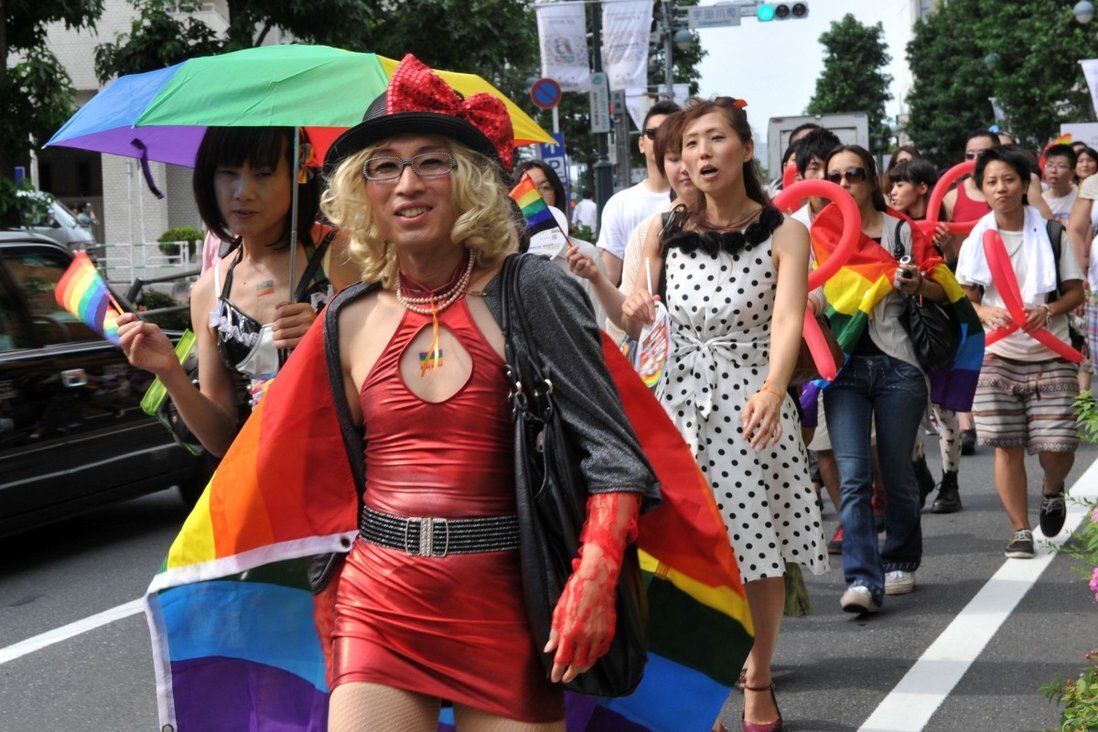Explained: gay rights, LGBTQ and same-sex marriage in Asia
LGBTQ activists have made significant progress in the Asia-Pacific in recent years but only a minority of countries recognise same-sex unions. Homosexuality remains illegal in some countries where same-sex intercourse can be punished by fines, caning or prison sentences.
Even as LGBTQ (lesbian, gay, bisexual, transgender and questioning) rights are increasingly recognised in the region, the community still faces discrimination and stigma in societies that promote traditional family units.
Which places are taking the lead?
New Zealand and Australia are the only countries in the Asia-Pacific to have legalised same-sex marriage: they did so in August 2013 and December 2017, respectively.
In May 2017, Taiwan’s constitutional court ruled that same-sex couples had the right to legally marry and set a two-year deadline for the government to enact legislation enabling them to do so. If the government fails to amend existing laws or pass new ones, same-sex couples will automatically be able to register their marriage under current law.
However, in November 2018, the self-ruled island’s reputation as Asia’s LGBTQ rights beacon was dealt a blow as voters rejected same-sex marriage in a series of referendums.
Taiwan’s government submitted a draft bill in February that would grant same-sex couples similar legal protections for marriage as heterosexual ones. If the bill is passed, it will be Asia’s first same-sex marriage law.
Last December, Thailand’s junta government backed a bill to recognise same-sex civil partnerships. Due to a backlog of pending legislation, the new parliament will probably vote on the bill after the March 24 general election.
Where has most progress been made?
In 2007, Nepal’s Supreme Court ruled that discrimination on the grounds of sexual orientation or gender identity was against the law. The court also ordered the government to legally establish a third gender category to recognise the rights of transgender people.
Nepal is widely believed to be the first country to register its citizens under a third gender category in its 2011 nationwide census.
The Asia-Pacific countries that officially recognise the third gender category include Australia, Bangladesh, India, Nepal, Pakistan and New Zealand.
With the exception of Bangladesh, these countries all issue third gender citizenship documents and passports.
Bangladesh’s authorities recently announced that it would add a third gender option to voting forms but homosexuality is still against the law.
In July 2018, Hong Kong’s top court unanimously ruled that immigration authorities must grant same-sex partners dependent visas that were previously available only to heterosexual couples. Same-sex marriage, however, is still not legalised in Hong Kong. The city continues to define marriage as a union between a man and a woman.
Last September, India’s Supreme Court unanimously struck down a colonial-era ban on gay sex. Activists have been challenging Section 377 of the penal code since the 1990s.
Four days after India’s historic ruling, a court challenge against the same law that criminalises sex between men was filed in Singapore, where public opinion is deeply divided over same-sex relationships.
The city state has not repealed Section 377A of the penal code, but the conservative Singaporean government has said in previous public statements that it will not proactively enforce the colonial-era law.
In December, Singapore’s High Court allowed a same-sex couple to adopt their surrogate son. The government, which does not support the formation of families by same-sex couples, may strengthen adoption regulations in response to the landmark decision.
Same-sex marriages are not explicitly banned under Japanese law but the matter has been long debated by legal scholars. Article 24 of the 1947 Constitution states “marriage shall be based only on the mutual consent of both sexes and it shall be maintained through mutual cooperation with the equal rights of husband and wife as a basis”. Japanese governments have usually interpreted that to mean marriage shall be between people of different genders. As a result, most municipal governments, which register marriages, refuse to accept the paperwork required to file a marriage between same-sex couples. Yet nine Japanese cities have adopted the partnership ordinances and five more cities are planning for similar systems in the year ahead.
Where are the strictest laws?
Indonesia, the world’s largest Muslim-majority country, has seen a rise in LGBTQ persecution in recent years.
Since 2016, the state-sanctioned crackdown against the gay community, including police raids and arrests at private spaces such as homes, nightclubs and saunas has struck terror into Indonesia’s LGBTQ population.
Under pressure from hardline Islamic groups, Indonesian lawmakers are considering proposed law changes that would criminalise same-sex relations and extramarital sex.
Activists say anti-LGBTQ sentiment is also on the rise in Malaysia, a Muslim majority country.
Gay sex is criminalised under Section 377A of the penal code and anything that offends religious sensitivities is punishable by the blasphemy law.
The most high-profile use of Section 377A in Malaysia was against Anwar Ibrahim, the political opponent of disgraced former prime minister Najib Razak. Anwar was arrested and jailed on sodomy charges in 2008. His 2012 acquittal was overturned in 2015 but Anwar received a royal pardon and was released from prison in May 2018.


